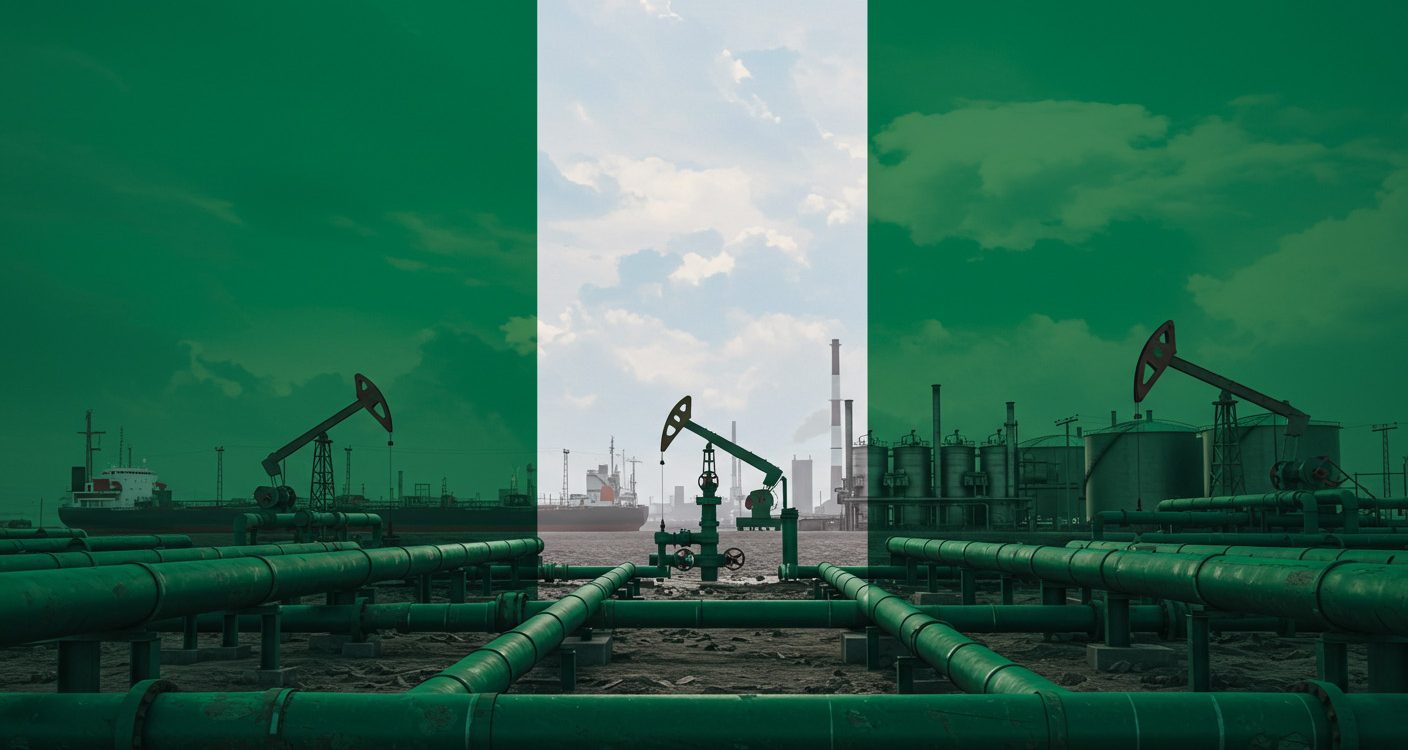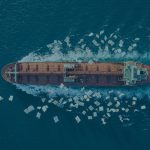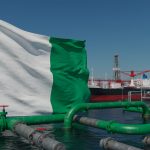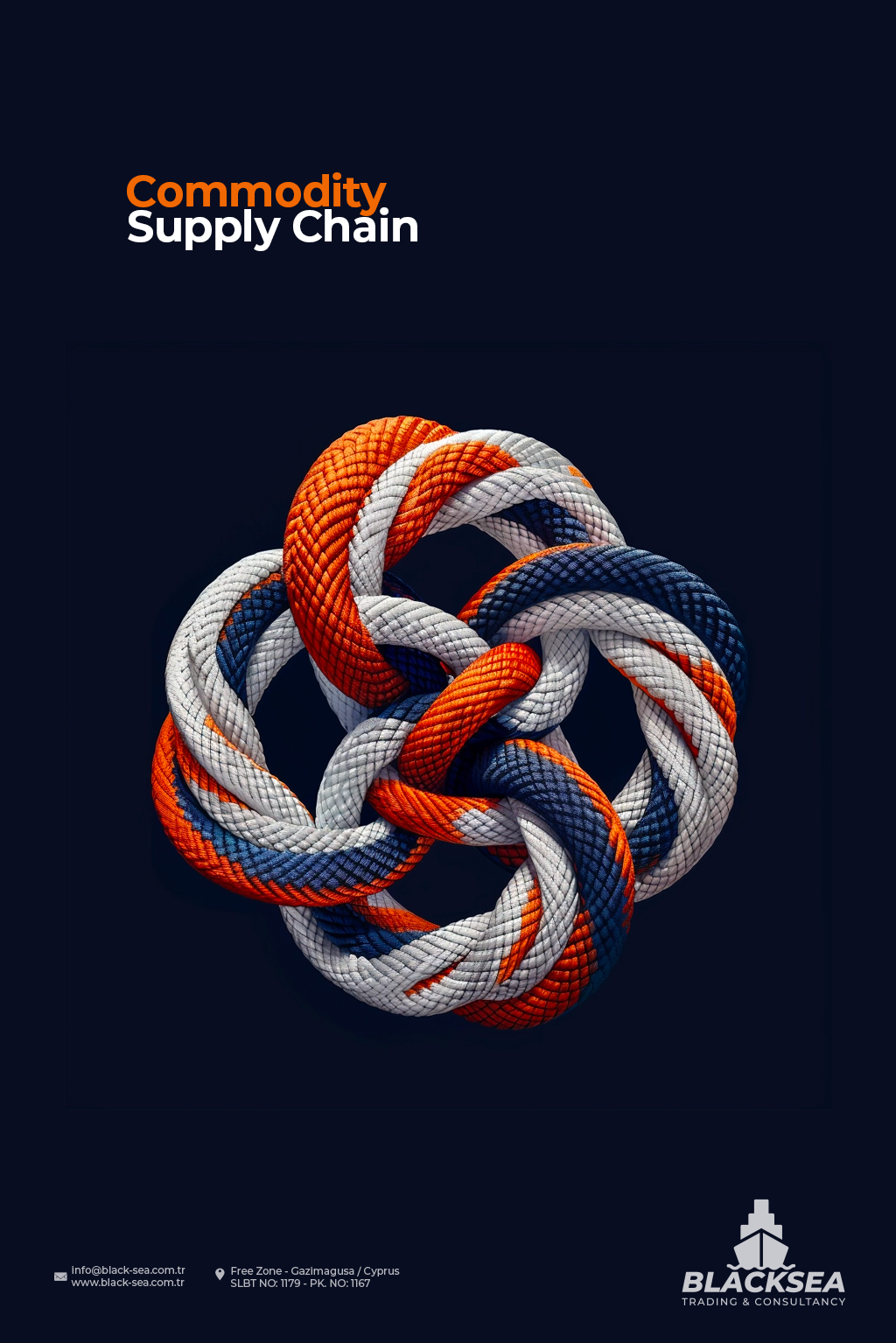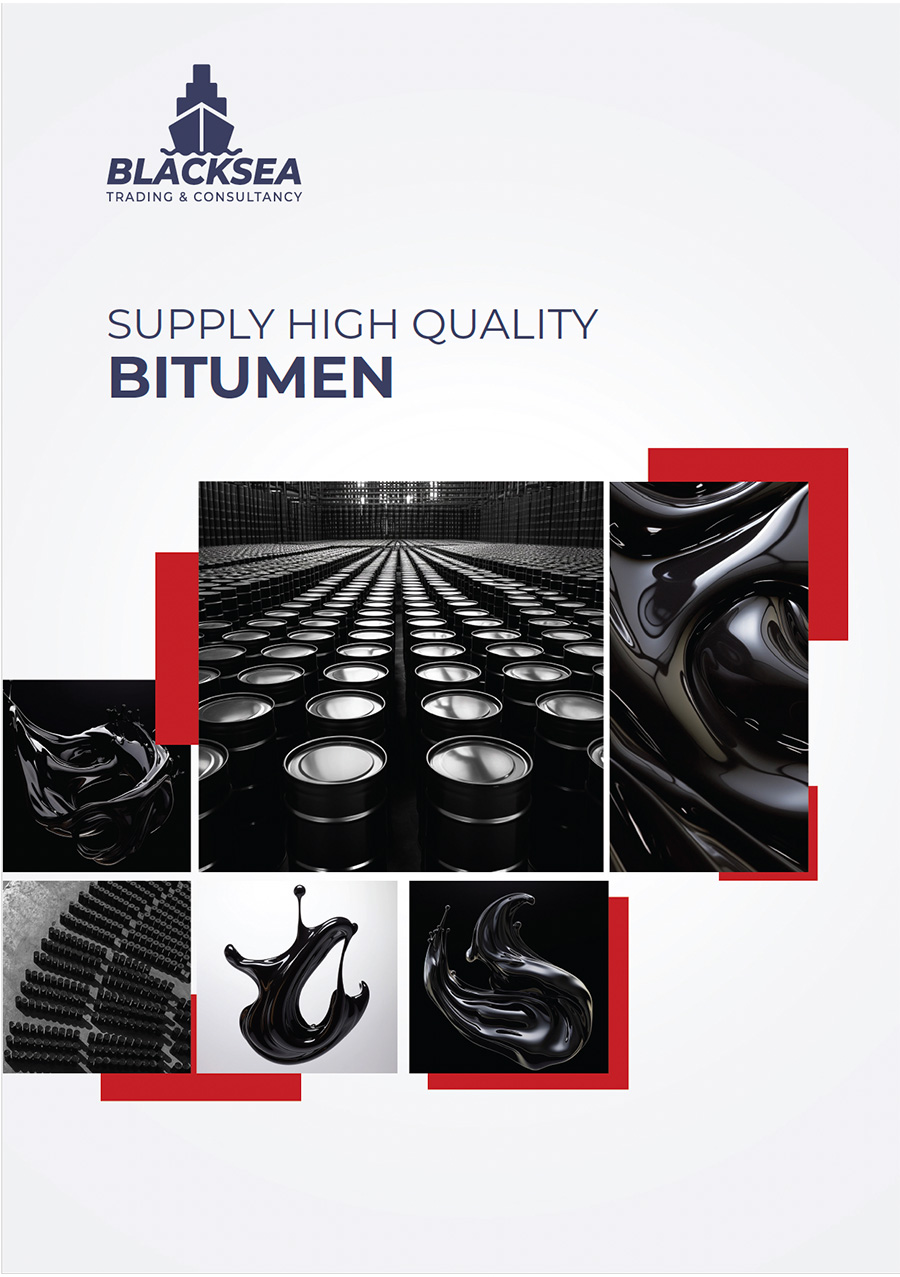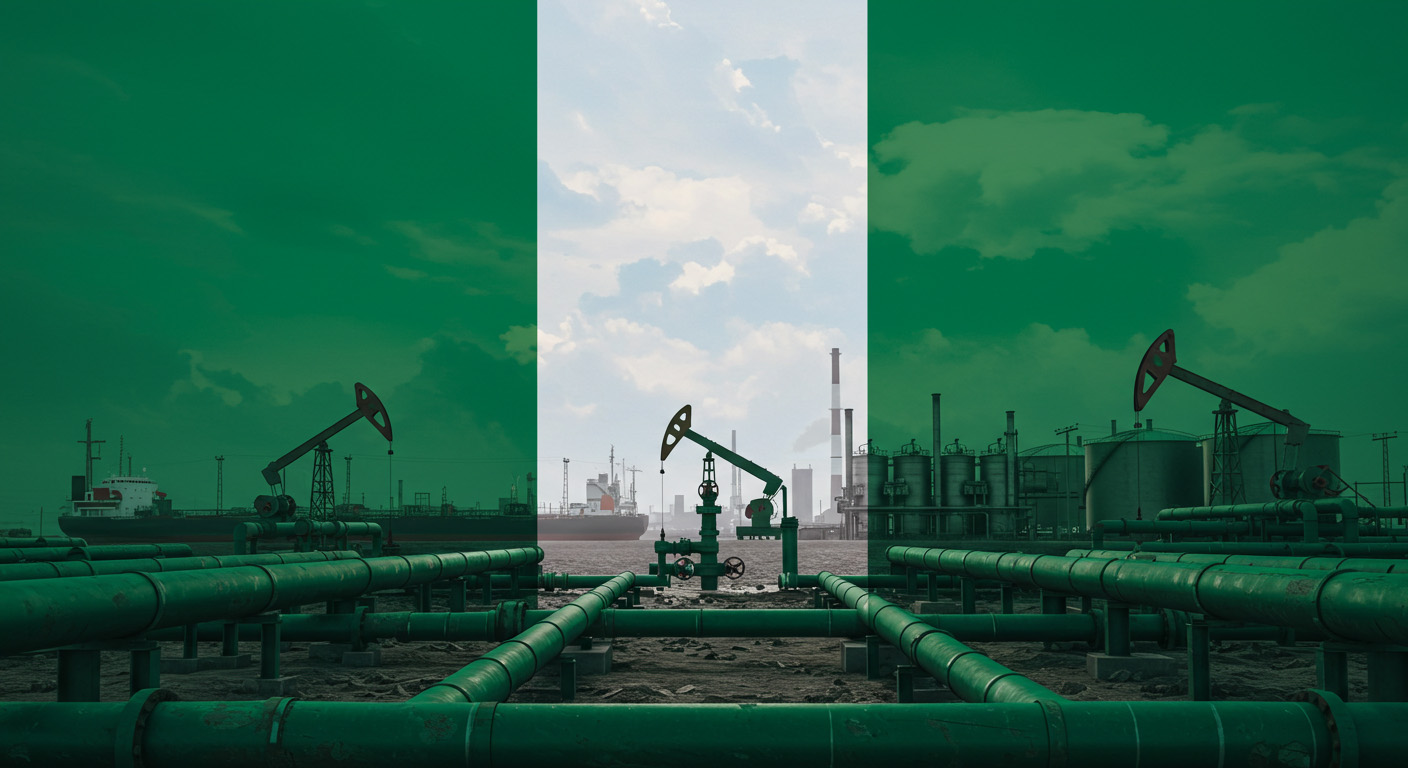
In recent years, Nigeria’s crude output has hovered around 1.5–1.7 million barrels per day (mbpd) including condensates. For 2024 the Nigerian Upstream Petroleum Regulatory Commission (NUPRC) reports ~578.5 million barrels total, an average ~1.58 mbpd (1.319 mbpd oil + 0.261 mbpd condensate) .
This falls well below Nigeria’s OPEC quota (~1.5 mbpd crude) and its 2024 budget target (1.7 mbpd) . The Nigerian National Petroleum Company (NNPCL) has set ambitious targets to raise capacity: over 2.0 mbpd by 2027 and 3.0 mbpd by 2030 . (A recent town-hall address by the NNPC Ltd. CEO Bashir Ojulari reaffirmed the 2.0 mbpd by 2027 goal .) Of Nigeria’s output, Bonny Light contributes on the order of a few hundred thousand barrels per day.
For example, Bonny Light production averaged ~250 kbpd in late 2020 but was about 210 kbpd in February 2025 , reflecting pipeline disruptions. Figure: Nigeria’s crude oil production 2000–2016 (left scale, thousand bpd; production peaked mid-2000s then fell sharply; by 2016 it was ~1.2 mbpd). (Source: Stratfor/Bloomberg, 2017) Nigeria’s production trend (Fig.) shows a sharp decline from over 2.3 mbpd in the mid-2000s to ~1.2 mbpd in 2016, after which modest recovery to ~1.5–1.6 mbpd by 2024 has occurred .
This sluggish output is largely due to unrest (sabotage, vandalism) affecting onshore pipelines (e.g. Forcados, Trans-Niger) that carry Bonny Light and other grades. In December 2024, Nigeria averaged 1.667 mbpd, with the Federal Government noting peak daily output ~1.79 mbpd . Pipelines have repeatedly been cut, limiting “nameplate” capacity of ~2–2.5 mbpd from being achieved
Exports & Key Markets
Nigeria exports nearly all its crude via a few coastal terminals. In late 2024, the Forcados terminal (Shell) and Bonny terminal (formerly SPDC, now under a local consortium) shipped the majority of export volumes . For example, in Dec 2024 Forcados lifted ~8.49 million barrels (highest among terminals) and Bonny ~7.78 million barrels .
Qua Iboe terminal (CNL/NNPC) added ~4.15 million barrels, while smaller Brass and Nembe ports handled lesser volumes. Export trends have fluctuated with on/off pipeline flow; threemonth Bonny loading schedules were cited in early 2025 at ~209 kbpd (April) and ~202 kbpd (May) .
Major export markets: Nigeria’s crude goes primarily to Asia, Europe and increasingly the Americas. Historically, India has been the top buyer of Bonny Light specifically .
More recently (2024 data), the United States became Nigeria’s largest crude market, surpassing European buyers .
Other leading importers of Nigerian crude (all grades) include major European refiners: France, Spain, Netherlands, Italy . (For 2024 the Nigerian Bureau of Statistics reports export receipts in Naira: US (₦3.64t), France (₦3.34t), Spain (₦3.02t), Netherlands (₦2.77t), Italy (₦2.64t), etc. .) Key partners thus span Asia
Bonny Light Quality Characteristics
Bonny Light is a high-quality “light, sweet” crude oil. Its API gravity is about 32.9° and sulfur content around 0.14–0.16% . This yields a low-density, high-gasoline component barrel attractive to refiners.
In comparative terms, Bonny Light is slightly heavier and sweeter than many North Sea grades: for instance, Brent Blend is ~38.1° API with ~0.37% sulfur , and U.S. WTI is ~39–40° API with ~0.24% sulfur. (By contrast, Nigeria’s other light crudes include Brass River at ~35.6° API/0.13% S and Escravos ~34.2°/0.17% .)
The low sulfur in Bonny Light means it yields a high proportion of clean-burning middle distillates (diesel) and gasoline. Its fairly high cetanefactor (~55) and paraffinic character also influence refining yields (with more waxy content). Overall, refiners prize Bonny Light for its blend of moderate density and very low sulfur.
Export Infrastructure & Partners
Nigeria’s export infrastructure is concentrated in the Niger Delta. The Trans-Niger Pipeline (TNP) – now operated by a consortium of local IOCs (“Renaissance Group”) – carries Bonny Light ~190km to the deepwater Bonny Terminal. The TNP has roughly 450,000 barrels/day capacity . The second major conduit is the Trans-Forcados Pipeline (TFP) (Shell-operated), a 48-inch subsea line (capacity ~200–240 kbpd ) feeding the older Forcados Terminal.
Both terminals load Aframax/VLCC tankers. (Shell’s Nembe Creek Trunk Line also feeds into Bonny.) In December 2024, Forcados and Bonny terminals led Nigeria’s output as noted above , with other outlets at Qua Iboe (connected by the Eastern–Delta pipeline) and Brass (northern delta) handling lesser volumes. Key pipelines and terminals: – Trans-Niger Pipeline (~450 kbpd) to Bonny Terminal . – Trans-Forcados Pipeline (~240 kbpd) to Forcados Terminal . –
Terminals: Bonny (deepwater VLCC), Forcados (shallower Aframax), Qua Iboe, Brass. NNPC Limited (through its subsidiaries) shares ownership in virtually all export pipelines and terminals.
The recent creation of NNPC’s trading arm (Duke Oil) and new indigenous joint ventures (e.g. Renaissance Group) is reshaping export marketing. NNPC also offtakes Bonny Light for domestic refining: in Q2–Q3 2025 Nigeria’s Port Harcourt refinery (210 kbpd capacity) resumed processing Bonny Light barrels under NNPC’s allocation.

Why Choose BLACKSEA INDEPENDENT ENERGY TRADE?
Quality Assurance: We ensure the highest quality standards for all our products, delivering reliability and excellence.
Competitive Pricing: Our commitment to fair and reasonable pricing ensures you get the best value for your investment.
Reliable Supply: Count on us for consistent and timely deliveries, maintaining seamless operations for your business.
Exceptional Service: Our team is dedicated to providing outstanding service, addressing your inquiries promptly and effectively.
Take this opportunity to optimize your sourcing strategy and benefit from our premium offerings. Please reach out to us at info@black-sea.com.tr to discuss your specific requirements or to place an order. We’re here to assist you in every step of the process.
We look forward to continuing our successful collaboration.
